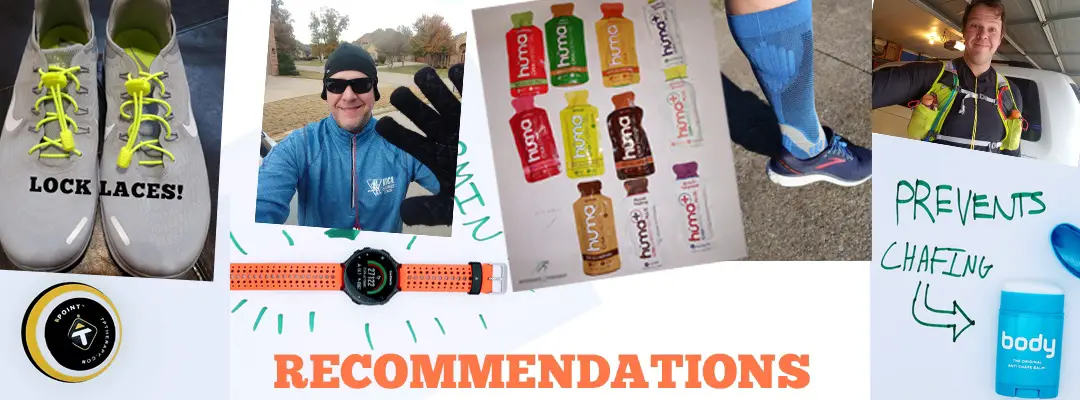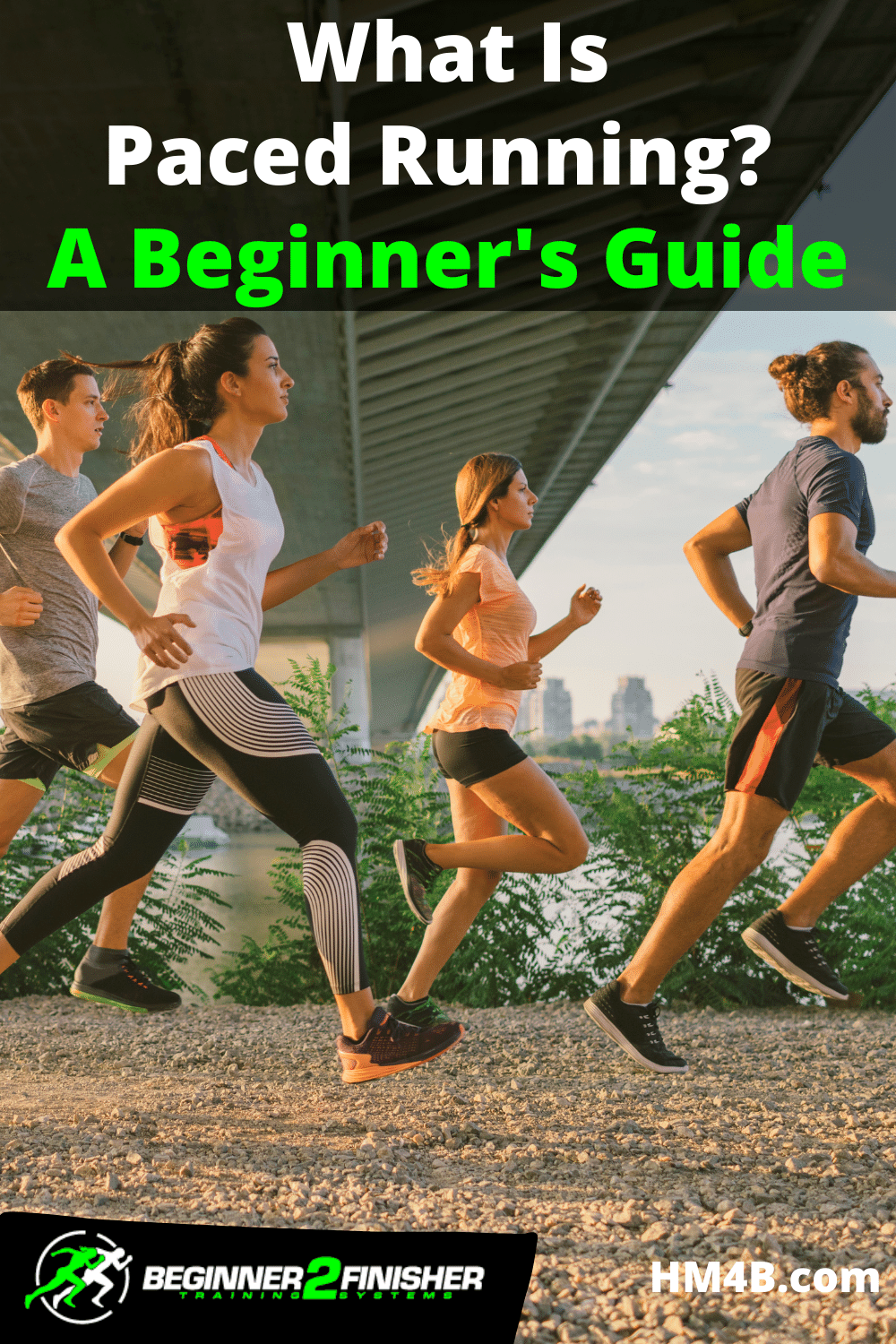Paced running is the idea that you want to stay at a steady speed, pacing your run to develop consistency and resilience. It’s a method of running that is essential in improving performance. Simply put, it’s the minutes-per-distance speed you run at.
Runners need to use pace to ensure they are staying on track to finish a total distance in an allotted time. It’s also used to improve speed over distances and performs as a valuable metric in determining this.
All runners will have heard ‘pace’ talked about at some point, and there’s good reason: It’s a universal standard that is easy to track and compare, no matter what level of runner you are.
How do you calculate your pace (miles and kilometers)?
It’s a relatively simple equation to calculate pace. To calculate, divide the total time by the distance you traveled. You’ll need to do another equation to get the seconds, but we’ll set this out below. This will give you your pace.
Let’s look into an example:
- 5km in 23 minutes (23 minutes divided by 5 kilometers) = 4.6 minutes per kilometer
- 60 seconds multiplied by .6 = 36 seconds
- Pace: 4:36/km
Because the first calculation will get us a decimal point that is a proportion of 1, we need to use this as a percentage to get the seconds. If our pace is 4.6 minutes, we need to calculate .6 of one minute (or 60 seconds), ergo the 60 multiplied by .6 calculation.
Another couple of examples to drive it home:
- 4mi in 41 minutes (41 minutes divided by 7 miles) = 10.25 minutes per mile
- 60 seconds multiplied by .25 = 15 seconds
- Pace: 10:15/mi
- 23km in 2 hours (120min/23km) = 5.22 minutes per kilometer
- 60 seconds multiplied by .22 = 13 seconds
- Pace: 5:13/km
- 10mi in 1 hour, 10 minutes (70 minutes divided by 10 miles) = 7 minutes per mile
- Pace: 7:00/mi
What is a good pace for new runners?
This is a hard question to answer. It’s almost like asking how long a piece of string is. To quantify, there are simply too many variables to dictate a reasonable pace for a beginner.
Since the 5K race is probably the most frequented race for all runners, here are rough average paces for all age groups:
- 9:30 minutes/mile – 14:00 minutes/mile ( 5:54 minutes/km – 6:50 minutes/km )
Since these are averages of all ages groups 12-69, Beginner runners will find themselves somewhere in this range. The results will vary drastically from one individual to another because of sex, weight, age, running environment, overall fitness level, VO2 Max, and other variables.
To put this into perspective, the world record as of February 2020, for the fastest 5K is held by Joshua Cheptegei at a 4:08 pace with a finish time of 12:51. This pace is more than 2x faster than the fastest average running pace for all age groups. Crazy!
Think about your current fitness levels and the physical environment in which you are running. These are the primary internal (fitness) and external (environment) factors that will dictate your capability and desired pace.
The best way to find this out is to go for a couple of 3-kilometer or 2-mile runs to see how you fare. Use the above calculations to see what your pace is, then add them together before dividing by the number of runs to get your average pace. This will be a far better yardstick than an arbitrary number we can give you.
Are you struggling with running just 1 mile? Check out my free training plan: How To Run 1 Mile When You’re Out Of Shape
What is race pace?
Race pace is the per-kilometer or per-mile pace you are aiming to achieve for a set-distance running race. You may want to run a half marathon in 2 hours, which would be 5:42 per kilometer or 9:10 per mile paces.
This is where using paced running is a valuable training tool. Time yourself running certain distances and see where your pace is at. Inevitably, your 5km pace will be much faster than your half marathon pace, but you can slowly build your tolerance to make the longer distances faster.
Related: 8 Tips To Help New Runners Run Faster Without Injury
What is a goal pace (goal race pace)?
A goal race pace is pretty self-explanatory. Set yourself a time in which you want to complete a distance. A 5km or 3mi race in under 20 minutes? You’ll be looking at 4-minute kilometers or 6-minute 40-second miles.
It’s easy to reverse-engineer these times as well. If you know you’re pretty good at running 4:45-minute kilometers in distances between 8km and 12km, and you’ve got an upcoming 10km race, simply multiply your pace by the distance. In this instance, you should be able to run 10km at around 47:50.
Why is pacing so important in running, especially in long distances?
In the thick of battle with the pavement or trail, it’s easy to falter when fatigue kicks in. This inevitably occurs later on in the race and having a measuring stick to give you an indication of how fast the previous kilometer or mile is will ensure you are still on track for your target time.
Conversely, we tend to get a bit over-excited when our legs are feeling fresh. This can lead to accelerated fatigue if we’re not careful, as our legs will burn out in the early goings of a race.
Related: What Is LSR In Running? Can It Improve My Running?
How do you get used to paced running?
Practice, practice, practice. You need to get your boots on the ground regularly and measure the distances and times. Phones can be a useful tool for this, with many applications tracking the time and distance for you. Smartwatches are also very handy if you have one.
Alternatively, make note of the time when you leave the house. A simple website map can give you the distance, otherwise, go for a drive in your car to measure the approximate distance. Then use the handy calculations in this article.
What gear is used to help with your pace?
As stated, phones for timing, applications to track distance, or a combination of both are a runner’s best friend for paced running. A smartwatch can keep you even more disciplined by showing splits and a live look at your time and pace (usually when synced with a running app). For a complete review of the best running watches for keeping pace at long distances check out my review: The Best SmartWatches For runners!
If you’re not technologically inclined, the old-school method of a watch and mapping out the distance via other means works just fine.
Related: What Gear Should I Wear When I Run – A Beginner’s Guide
Conclusion
Paced running is such a valuable method for improving your performance when hitting the streets or the trails.
Use simple calculations, start slow, maybe invest in some runner’s tech to accompany you on your run (phones or smartwatches), and watch your ability go from strength to strength.
Speed, discipline, and being methodical are central tenets to the runner’s ethos and psyche. Paced running is an embodiment of this and should be used dutifully by runners of all ability levels.
Related: How Far Should New Runners Run?
| Help support me and subscribe to my YouTube channel. YouTube video - 30 ways to make your runs less painful! Coach Scott's Credentials:
|
To sign up for a FREE half marathon training schedule, log sheet, and pace predictor CLICK HERE.

Recommended gear for runners
Connect with me:
| facebook.com/BeginnerToFinisher/ |
References
https://www.stack.com/a/running-pace/
https://sporttracks.mobi/blog/understanding-pace-in-running

